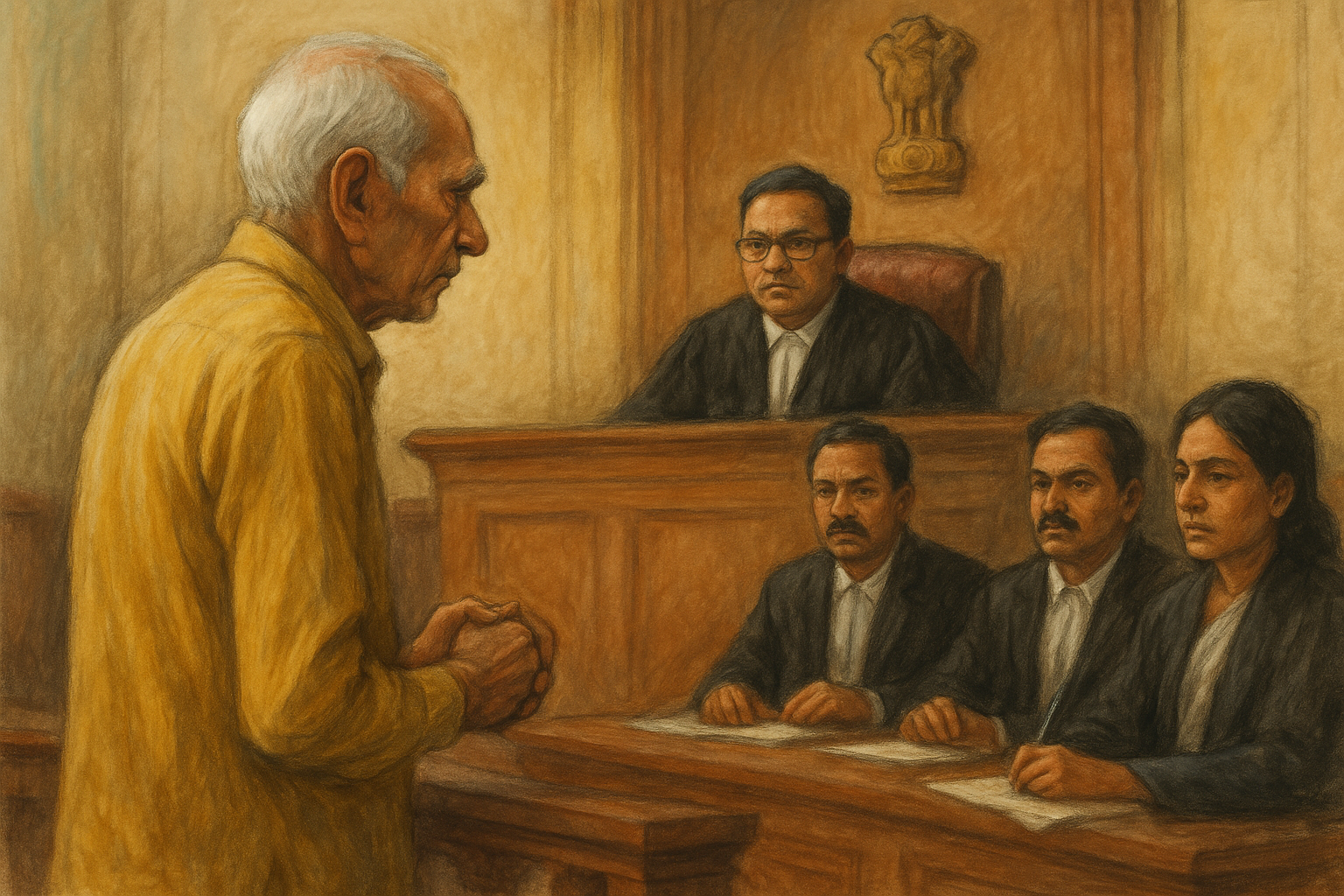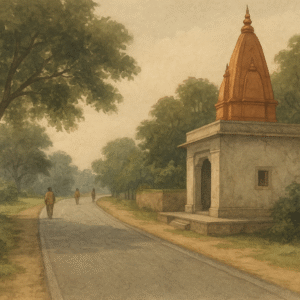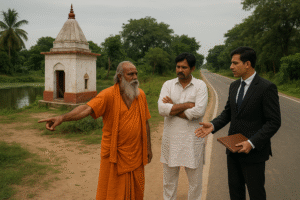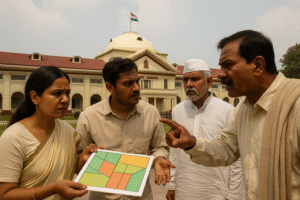The Patna High Court set aside a disciplinary order that had withheld the retiree’s entire pension, holding that the inquiry process violated the principles of natural justice. The Court emphasized that when departmental authorities rely on specific documents to prove charges, those documents must be supplied to the charged employee so that he can effectively defend himself. Because that did not happen here, the entire proceeding was vitiated and the punishment order was quashed.
This case involved a retired government employee who had been proceeded against for alleged irregularities connected to paddy procurement operations for 2012–13. He was working as a Block Co-operative Extension Officer and In-Charge of a Purchase Center in Bagaha, and criminal cases had also been registered regarding the alleged irregularities. During the pendency of proceedings, he superannuated, and the disciplinary case was continued under pension rules. Eventually, the department imposed a punishment of withholding 100% pension under Rule 43(b) read with Rule 139 of the Bihar Pension Rules. The retiree approached the High Court to challenge that order.
The High Court recorded that the core grievance was non-supply of the very documents relied upon by the Inquiry Officer. Despite repeated requests during the inquiry, those documents were not furnished. The petitioner argued that this denial disabled him from offering an effective reply to the show-cause and from meeting the charges. In fact, the Inquiry Officer himself noted in the report that certain documents demanded by the charged employee had not been supplied. The State did not controvert this position in its counter-affidavit.
On these facts, the Court reiterated a basic facet of natural justice: if an authority intends to use and rely on documents to hold charges proved, the delinquent employee must be provided copies to enable an effective defence. Non-supply of such documents vitiates the inquiry. Applying this settled rule, the Court found that the departmental proceeding and the consequential punishment order were liable to be quashed.
The State had argued that the writ petition was not maintainable because an alternative appellate remedy existed. The Court rejected that objection, noting that when there is a complaint of violation of natural justice or infringement of fundamental rights, a writ petition is maintainable despite the availability of an appeal. Accordingly, the Court proceeded to examine the case on merits and granted relief.
In the result, the High Court quashed the order dated 26 July 2019 that had withheld 100% pension and set aside the entire disciplinary proceeding. However, it did not close the door permanently; instead, the Court remanded the matter to the authorities to proceed afresh, strictly in accordance with law and the principles of natural justice. It also recorded that, as regards other admitted retiral benefits, the employee may make a representation, which the authorities must decide in accordance with law.
Importantly, the case shows the Court’s scrutiny when departments invoke Rule 43(b) and Rule 139 of the Bihar Pension Rules to curtail or withhold pension post-retirement. While those provisions allow action for proven misconduct even after superannuation, the inquiry must adhere to minimum procedural fairness. Here, the failure to share relied-upon documents—despite requests and even acknowledgment in the inquiry report—was sufficient to invalidate the entire action.
Overall, the Court’s approach protects retirees from disproportionate and procedurally flawed punishments, while preserving the State’s authority to act lawfully if it can conduct a fair and just inquiry.
Significance or Implication of the Judgment
This decision has broad significance for public servants and pensioners in Bihar:
- It underscores that pension is not a bounty; it is a valuable right that cannot be taken away without due process. When departments rely on documents to sustain charges, they must share those documents. Failure to do so can nullify the entire proceeding.
- It clarifies that employees can approach the High Court directly in cases of procedural unfairness, even if an appeal is provided by service rules. This ensures prompt judicial oversight where natural justice is at stake.
- It reminds departments that actions under Rule 43(b)/Rule 139 post-retirement require scrupulous compliance with fair-play standards. Where procedural safeguards are ignored, severe punishments like 100% pension withholding will not survive.
- For governance, the case acts as guidance to inquiry officers and disciplinary authorities to maintain accurate records of document supply and to respond to document requests during inquiries. This reduces litigation and ensures sustainable decisions.
Legal Issue(s) Decided and the Court’s Decision with reasoning
- Whether the disciplinary proceeding and the punishment withholding 100% pension were sustainable when the relied-upon documents were not supplied to the charged employee.
• Decision: No. Non-supply of relied-upon documents violated principles of natural justice, vitiating the entire proceeding and the punishment. - Whether the writ petition was maintainable despite an alternative appellate remedy.
• Decision: Yes. In cases alleging violation of natural justice or fundamental rights, writ jurisdiction is available notwithstanding alternative remedies. - Appropriate relief and next steps.
• Decision: The Court quashed the disciplinary proceeding and the order dated 26.07.2019, remanded the matter to proceed afresh in accordance with law, and permitted representation for other admitted retiral benefits.
Case Title
Petitioner v. State of Bihar & Ors.
Case Number
Civil Writ Jurisdiction Case No. 737 of 2020.
Citation(s)
2021(2) PLJR 364
Coram and Names of Judges
Hon’ble Mr. Justice Prabhat Kumar Singh.
Names of Advocates and who they appeared for
For the petitioner: Mr. Krishna Kant Singh, Advocate.
For the respondents (State): Mr. Balram Kapri, Junior Counsel to Standing Counsel 26.
Link to Judgment
MTUjNzM3IzIwMjAjMSNO-g8hhBNcC7P0=
If you found this explanation helpful and wish to stay informed about how legal developments may affect your rights in Bihar, you may consider following Samvida Law Associates for more updates.








